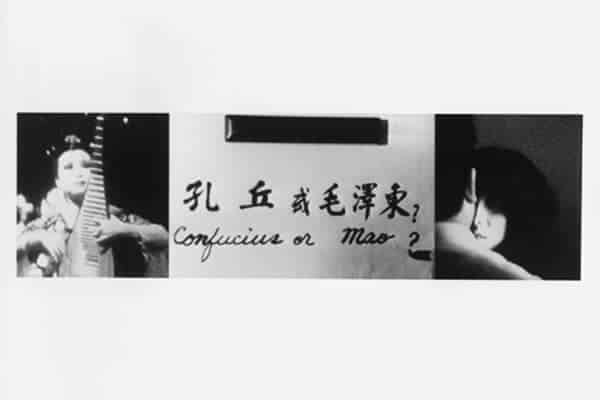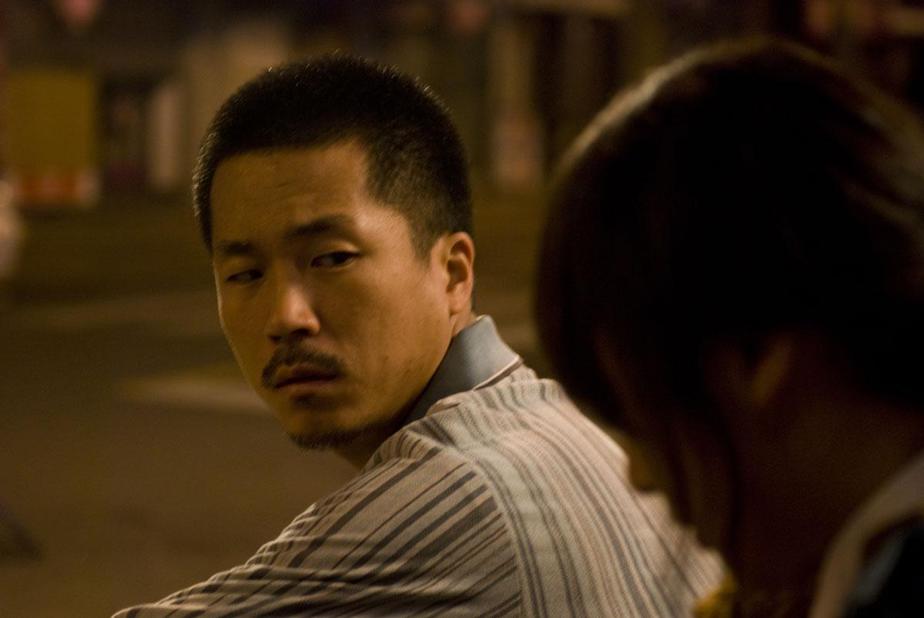“Between Heaven and Earth” by the Palestinian filmmaker Najwa Najjar (“Pomegranates and Myrrh”, “Eyes of a Thief) is structured like a road movie with an unusual pair setting off on a journey and of course, meeting various colorful characters on their way. However, nothing can be easy in a conflict-torn territory, so do not expect a joyride. An ironic dramedy with time gives room to a psychological drama and even bits of a mystery thriller. Middle East politics, which was present also in the backdrop of the previous films of the director, is like a ghost, hunting the everyday life and preoccupying troubled hearts and souls of the protagonists.
“Between Heaven and Earth” is screening at the London Palestine Film festival.

Salma (Mouna Hawa) and Tamer (Firas Nassar), residents of Ramallah in the West Bank, want to divorce, and to deal with court proceedings they need to visit Israel. Salma is a Palestinian from Nazareth holding Israeli citizenship, while Tamer is Palestinian born in Beirut. During the five years of their marriage, he has never been granted a permit to cross the checkpoint before. Ironically, he may do it now, granted the 72-hrs entry permit, to break the symbolic union their relationship represents. It seems that the most difficult part of the venture is behind them… but at court, things get unexpectedly complicated. According to the official Israeli records, some information about Tamer's late father, an investigative reporter and politically-involved activist, does not match. It appears he lived at a different address than Tamer stated, was married to a Jewish woman named Hagar (which would place their divorce case at a Jewish court), and had a son named… Tamir. The couple needs to solve this puzzle and provide documents proving their version. It will soon become a “ghost hunting trip”, as Tamer calls it, during which painful layers of the past will be gradually uncovered. Mouna Hawa and Firas Nassar both give very convicting performances, leading us through this labyrinth of memories, past secrets, and tangled emotions.
The tension caused by the fragile Arab-Jewish relationship is omnipresent. It's not only about who and with what ID and for how long can cross the symbolic border. The strict rules apply to even trivial tasks like driving – on the Israel side, only Selma is allowed behind the wheel of their old blue Mercedes, because of its Israeli plates. You also need to be wary of which language you speak to whom. In a tense scene, young and hot-headed Israeli males are fuming when their grandfather is speaking Palestinian Arabic to visitors.
The director introduces also to the troubled history of “lost children” of Arab Jews as well as the story of a small village called Iqrit, whose residents were exhaled from their homeland. The way the storyline finds its resolution may be a bit shaky, but the biggest strength of the movie comes from underlying the psychological price one has to pay to live in a reality as this of Israel and Palestine. For both Tamer and Selma, unresolved past and complicated present is still interfering with their lives, influencing their relationship. Inner demons keep hunting Tamer, despite the relatively trouble-free middle-class life he is leading with his wife in their comfy and elegant house. He needs to realize how his attempts to escape his family's past affect Salma. It is obvious that their love is not a long lost cause, and they still are deeply attached to each other. The divorce of this couple may be seen as a symbolic representation of the divorce between Palestinians of the West Bank of those residing in Israel, as well as – in a broader sense – the division between the two nations, Israelis and Palestinians. Najwa Najjar (who also scripted the movie) added an interesting angle to the modern portrayals of decades-old conflict –showing it from a slightly different than usual perspective.
PS As a bonus – you get a great soundtrack compromised of contemporary Arab artists, including Natasha Atlas.















